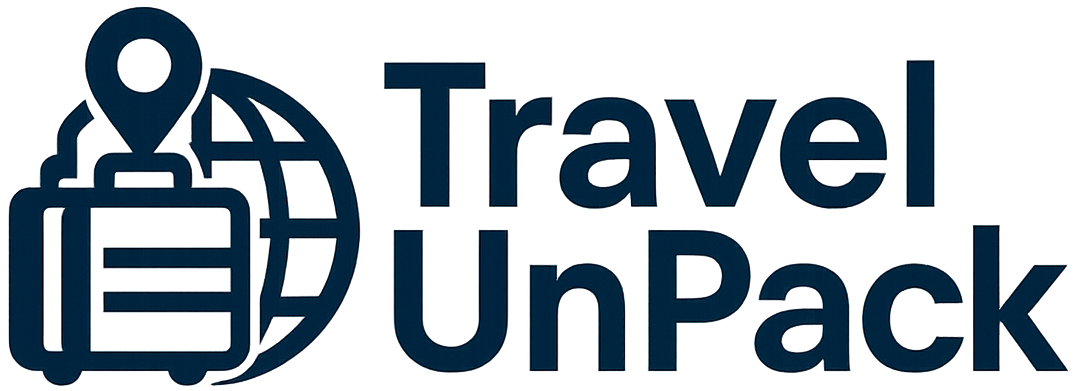Why are academic events fertile ground for professional networking?
Academic events such as congresses, seminars, lectures and workshops are much more than opportunities to absorb technical knowledge. They function as true hubs of connection, where students, professors, researchers and industry professionals come together to exchange ideas. Imagine being in the same environment as a recruiter from your dream company or a researcher you admire. These meetings allow you to build relationships even before you officially enter the job market.
A common mistake is to believe that networking only starts after graduation. In reality, the earlier you start, the bigger your network will be when you need it. Have you ever thought about how many doors can open simply because you talked to someone during the coffee break at a symposium? These informal interactions can lead to nominations for internships, research projects or even invitations for future collaborations.
In addition, academic events often feature experienced speakers and professionals. They are not only there to transmit content, but also to interact with the public. Asking a relevant question after a lecture or approaching the speaker to discuss a specific point can mark your presence in a positive way. These professionals are often willing to mentor young talent - you just need to know how to approach them.
Finally, taking an active part in these events demonstrates proactivity and genuine interest in the area. That doesn't go unnoticed. If you attend conferences, present papers or take part in discussions, you're building a reputation while you're still an undergraduate. When the time comes to look for an opportunity, you'll not only have a CV, but also a network of people who can testify to your potential.
How do you prepare before the event to maximize your connections?
Efficient networking doesn't happen by chance - it requires planning. Before you even set foot in the venue, you can start preparing to make valuable connections. The first step is to research the program and identify which lectures, round tables or workshops are most relevant to your objectives. If there are special guests, find out about their backgrounds and areas of expertise.
Another important tip is have a well-crafted personal pitch. This doesn't mean a memorized speech, but a clear and concise presentation of who you are, what you study and what your professional interests are. For example: "I'm an electrical engineering student with a focus on renewable energies and I'm currently taking part in a project on energy efficiency in small industries." That way, when the opportunity arises to present yourself, you convey confidence and direction.
Also bring supporting materials, such as business cards or a link to your optimized LinkedIn. It may seem like an exaggeration for a student, but these tools make it easier to get in touch later. If you don't have cards, a simple alternative is to create a profile on [Canva](https://www.canva.com/) with your main information and save it on your phone to share digitally.
Finally, set realistic goals. How many people do you want to meet? Do you want to focus on recruiters, academics or colleagues? Having a clear objective will prevent you from getting bogged down during the event. Remember: quality is more important than quantity. One in-depth conversation with someone aligned with your interests is worth more than ten superficial interactions.
How do you approach people and start conversations without seeming intrusive?
Many students feel intimidated when talking to strangers, especially if they are more experienced professionals. But what if I told you that most people are open to talking? The key is how you start the dialog. A good strategy is to use the context of the event as a hook. For example, comment on a talk that has just taken place or ask the person's opinion on a topic discussed.
Avoid starting with generic questions like "What do you do?". Instead, show genuine interest. How about something like: "I saw that you work with artificial intelligence in the health sector. How has the challenge of applying these technologies in public hospitals been?" This shows that you've done your research beforehand and want a meaningful exchange.
Another effective approach is ask for advice. People generally like to share their experiences. Questions like "What was the biggest challenge you faced at the start of your career?" or "What skills do you think are essential for someone who wants to enter this field?" make room for a rich dialog and leave a positive impression.
What if the conversation turns cold? Don't panic. You can make a natural transition by mentioning something related to the environment: "By the way, have you ever been to another event run by this organization? I'm curious to know what the experience is like." If you notice that your interlocutor is in a hurry, thank them for their time and suggest keeping in touch later. The important thing is not to force the interaction - networking should be organic and mutual.
How to maintain connections after the event without being inconvenient?
Making contacts at the event is just the first step. Real networking happens in the follow-upIn other words, the way you cultivate these relationships afterwards. A simple but powerful practice is to send a personalized message on LinkedIn or by email within 24 to 48 hours of the event. Something like: "It was a pleasure to meet you at the sustainability seminar yesterday. I loved your perspective on the challenges of the circular economy and would love to keep in touch!"
But beware: no generic or copy-and-paste messages. Show that you remember what you talked about. If the person mentioned a project or article, for example, you could say so: "I was curious about the study you mentioned on renewable energies. Do you have any material you recommend I look into?" This shows real interest and opens the door to future interactions.
Another valuable tip is share relevant content from time to time. If you find an article, video or event that might interest your contact, send it with a short message. For example: "I remembered our conversation about smart cities when I saw this report. I think it could be useful for your work!" This approach keeps the bond active without seeming forced.

Finally, don't underestimate the power of face-to-face meetings. If the event is recurring, attend again and strengthen ties. Inviting someone for a coffee or joining a study group related to the area are also ways of strengthening the connection. Remember: networking is about building lasting relationships, not just collecting contacts.
How can we turn academic connections into concrete opportunities?
There's no point in having an extensive network if you don't know how to use it to your advantage. The key is to be strategic. Let's say you've met a professor who works in a line of research that interests you. How about proposing a collaboration? Academic projects often need volunteers or assistants, and showing initiative can put you under the radar.
Another way is ask for nominations for internships or trainee programs. If you've built up a relationship of trust with someone in the area, there's no harm in asking: "I'm looking for opportunities in digital marketing. Do you know of any companies that have open positions or that would be worth me sending my CV to?" Many vacancies are not even advertised publicly - they are filled by referrals.
What's more, don't ignore the potential of your fellow undergraduates. They can become partners in future projects, refer you for positions or even open doors in their networks. A real example: two business students who met at a conference created a startup together years later. Who would have thought that coffee shared between lectures would turn into a successful partnership?
Finally, be prepared to reciprocate. Networking is not a one-way street. If you want to receive help, be willing to offer it too. Share opportunities, recommend materials or simply support the work of your contacts. This reciprocity strengthens ties and increases the chances of them remembering you when something relevant comes up.
What are the common mistakes to avoid when networking at academic events?
Even with the best intentions, some slip-ups can jeopardize your networking attempts. One of the most common is to focus only on "collecting" contacts without worrying about the quality of the interaction. There's no point in leaving the event with dozens of cards in your hand if you can't remember who each person is or what they talked about. Better fewer contacts, but more meaningful ones.
Another mistake is arrive with an excessively self-promotional attitude. Nobody likes talking to someone who only talks about themselves. Instead of listing all your achievements, show curiosity about the other person's work. Ask about challenges, opinions and experiences. Remember: networking is about building a relationship, not a monologue.
Lack of follow-up is also a cardinal sin. If you promised to send an article or get in touch after the event, do it. Otherwise, it gives the impression of disinterest or a lack of professionalism. One tip is to write down something specific about the conversation right after it's over - this helps to personalize your message afterwards.
Finally, avoid "invisible" behavior - just stand in the audience, without interacting with anyone. If you're shy, start slowly: say hello to the organizer, ask a question during the Q&A or talk to the participant next to you. Every little interaction counts. After all, how can you expect people to remember you if they haven't even had a chance to get to know you?
How do you measure the success of your networking and adjust your strategy?
Networking is an ongoing process, and evaluating your results helps you refine your approaches. A simple way to measure progress is to track how many connections have led to relevant conversations, referrals or opportunities. For example: you met 20 people at the last congress, but how many of them kept in touch? Did any of them result in an interview or collaborative project?
Another indicator is engagement in your online interactions. Do your contacts like, comment on or share your posts? This shows that the relationship goes beyond the superficial. Tools such as LinkedIn offer insights into who views your profile - if professionals in the field are appearing, it's a sign that your networking is generating visibility.
Also, think about quality versus quantity. If you notice that many connections don't pan out, perhaps it's time to focus on events that are more in line with your interests or to adjust the way you initiate dialogues. Effective networking is not about knowing everyone, but about knowing the right people.
Finally, don't be afraid to ask for feedback. If you have developed a close relationship with a contact, ask honestly: "What do you think I could improve in my professional approach?" Many people will be happy to help, and this feedback can be valuable for your growth. After all, every interaction is a chance to learn and improve.
Ready to put these tips into practice? The next academic event can be the kick-start to your career - you just have to know how to take advantage of it. Remember: opportunities don't fall from the sky; they are built through genuine relationships and strategic effort. Now it's up to you!



